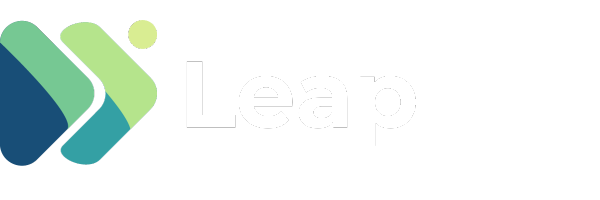Knowledge Engineering: The Next Frontier for Educational Publishers
Moving Beyond Traditional Coursebooks

In this second article of our two-part series, we explore Knowledge Engineering - which might sound like something from a sci-fi movie but is transforming education as we speak. This powerful approach is changing how we create and deliver learning materials, opening new doors for publishers ready to embrace the future of education.
The ultimate goal of Knowledge Engineering is to create intelligent systems that can perform tasks with the skill of a human expert. An excellent example is the "Longman Dictionary of Contemporary English," which was designed so that over 70,000 words are defined using a core vocabulary of just 2,000 words.
How Does This Impact Publishing?
Traditional books force knowledge into a rigid, page-by-page progression that fails to capture the intricate web of interconnected ideas in our minds. While our thoughts naturally leap between related concepts, drawing unexpected parallels and forging creative connections, physical books remain stubbornly linear – each chapter following the next in an unchanging sequence that can't adapt to individual learning paths or interests.
Traditional books force knowledge into a rigid, page-by-page progression that fails to capture the intricate web of interconnected ideas in our minds. While our thoughts naturally leap between related concepts, drawing unexpected parallels and forging creative connections, physical books remain stubbornly linear – each chapter following the next in an unchanging sequence that can't adapt to individual learning paths or interests.
This limitation becomes especially apparent when we consider how knowledge actually forms in our minds: as a rich network of associations, where concepts from different domains naturally interweave and inform each other. The static nature of printed books means they can't showcase these dynamic relationships or adjust their presentation based on a reader's unique background, interests, or learning style. For example, a medical student can't easily see how a biological process relates to similar patterns in economics or how a historical event connects to modern technological developments without juggling multiple books and making these connections themselves.
Modern digital approaches offer a stark contrast, enabling dynamic mapping of knowledge relationships that transcend traditional subject boundaries. These tools can generate instant visualizations that zoom from broad overviews to minute details, create precise cross-references between seemingly unrelated chapters, and even power AI tutors that provide personalized guidance. Unlike the one-size-fits-all approach of physical books, these systems can adapt their presentation and explanation style to match each learner's needs, creating a more engaging and effective educational experience.
👉 Get your copy here!
Korea takes the Leap!
(pun not intended)
The evolution of educational materials is entering a new phase, transitioning from traditional paper textbooks through digital formats to an emerging era of AI-enhanced learning resources. This transformation is particularly evident in South Korea, where educational innovation is taking center stage. The country's Ministry of Education has announced plans to implement AI-powered digital textbooks in their school system in the coming semester, as reported by the Korea Times.
This initiative will introduce a targeted approach where schools can select one AI-enhanced digital textbook for each subject area. These advanced learning tools are engineered to adapt to individual student's learning rhythms and comprehension levels, offering a more personalized educational experience. Additionally, educators will have access to sophisticated analytics that can inform their teaching strategies and help them develop more individualized approaches to student instruction.
However, this technological advancement in education isn't without its critics. Some educators have raised valid concerns about potential drawbacks. They worry that extensive use of digital platforms might negatively impact students' fundamental literacy skills and potentially inhibit creative thinking. Perhaps most concerning is the possibility that this shift could widen existing educational disparities between different socioeconomic groups, as access to technology and digital resources often correlates with economic status.
Becoming More Precise
The integration of AI in textbook development extends beyond personalization into the realm of content accuracy and coherence through an advanced process of systematically mapping and validating knowledge relationships. This methodical approach to organizing educational content functions like a sophisticated validation system, examining how different concepts interconnect and ensuring logical consistency throughout the material.
Much like how spell-check tools scan for linguistic errors, these advanced AI systems serve as conceptual reviewers, analyzing the relationships between ideas and identifying potential gaps or inconsistencies in the educational material. The technology can detect when definitions aren't aligned across different chapters, spot missing foundational concepts that should be included for complete understanding, and ensure that complex ideas build upon each other in a logical sequence.
This systematic approach to content verification helps eliminate the human oversights that can occur during the traditional textbook writing process. For instance, an author might unknowingly use slightly different definitions for the same concept in different chapters, or might assume knowledge of a prerequisite concept that hasn't been properly introduced. The AI system can flag these inconsistencies, helping to create more reliable and comprehensive educational materials that present information in a more structured and coherent way.
Looking to the future of educational content, we must ensure that technological advancement serves to enhance rather than diminish the profound role of expert educators in knowledge transmission. The next generation of textbooks has the potential to capture and preserve educational expertise with unprecedented fidelity, transforming how we document and share human understanding across generations.
The ultimate goal is not to replace human teachers, but to amplify their impact by creating more precise and durable ways of capturing and transmitting their expertise. These next-generation textbooks could serve as powerful tools for preserving humanity's collective knowledge while making it more accessible and engaging for future learners.
Thank you for reading. I hope you found it valuable; if you did, please forward it to a friend.


